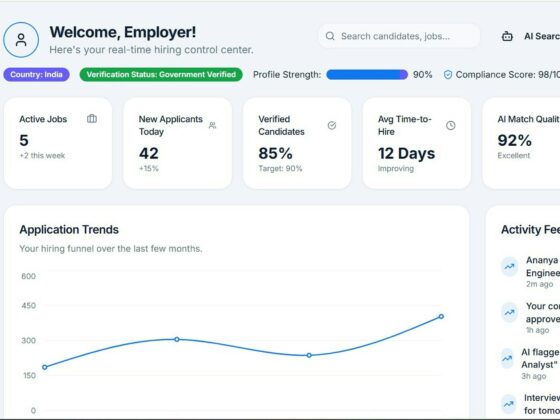ChatGPT could become another ad channel for OTAs but can OTAs compete on agents? Some AI projects that actually work. Why AI fails. And Monocle.
Hello,
The AI hype is still on, but between the hype there are actually projects that do increase productivity. They’re just a lot more boring than generating funky videos.
PS: The most complete hotel brands chart ever made, check it out.
Best, Martin
Klairhaus, the perfect employee and customer gifts. Quality, crafted, every day items for the office. Find out more ➛
Self-service for work, actual service for leisure
Amadeus’ recent study on how travel preferences pretty much fits my preferences, when I’m traveling for work I would rather self-checkin but when I’m traveling with the family I would rather speak to someone. Luckily the study has a lot more data than that. About service, one could say that the more unknowns there are, the more service we require. See my column below.
TRAVEL PURPOSE AND GUEST EXPECTATIONS
Tiktok Go social bookings for real?
Social commerce has still not quite become the amazing channel we all expected, many years ago. There was even a trend for F-Commerce about a decade ago. In China they have integrated custom built on-platform hotel booking engines within their social channels. It is almost considered a direct channel. But it seems like Tiktok has prioritized the OTA channel in the west. Let’s see how this goes.
TIKTOK GO HOSPITALITY IMPACT SOCIAL DIRECT BOOKINGS
About me: I'm a fractional CMO for large travel technology companies helping turn them into industry leaders. I'm also the co-founder of 10minutes.news a hotel news media that is unsensational, factual and keeps hoteliers updated on the industry. Stock counting with AI at Starbucks
Starbucks’ implemented an AI-powered inventory counting system, which reportedly reduces inventory counting time from an hour to 10-15 minutes. Probably not an easy solution to implement but one can imagine this for hotels, minibars, linen, restaurants etc. It’s a practical improvement of operational tasks that could increase precision and reduce time – and costs.
STARBUCKS AI INVENTORY
Like this? Share it!
Boring AI that actually works
We’re so busy talking about generative AI that we forget the many AI solutions that have been around for a while. Google’s P-max ads and Meta use a lot of AI to build targeting patterns and models. Cendyn reports that it reduces costs by 19%, D-EDGE reported something similar about a year or so ago. Let’s not forget all the AI that actually works already. I guess that phrase “AI is anything that doesn’t work yet” is kind of accurate.
OLD-AI IN HOTEL MARKETING
Why do AI projects fail?
CEO of Accenture, gives some reasons why many AI projects fail: legacy processes, excessive collaboration, and impractical projects as red flags. It sounds about right. AI projects are so broad, and tacle such broad unknowns that if there needs to be a team, the Bezos method of 2 pizzas is probably best. I think there’s a lot to gain – but is there a killer app?
AI PROJECT FAILURE RED FLAGS
Monocle’s exclusive focus
Monocle isn’t into social media and at one time they weren’t even publishing many online articles. They’re focused on one high quality printed magazine that isn’t always available. They even have a limited number of partner cookies when you accept their cookies (how refreshing). That focus on building consistency is a brilliant reminder of how brands are made.
MONOCLE SOCIAL MEDIA STRATEGY
Quibi, Google Glass, AIpin?
A lot of tech fails because it is too early. A creator is excited to get out the right product because they can see the future and it is obvious to them that this is the way to go. I think we can list a lot of things like that in hospitality as well, expensive check-in kiosks come to mind. But as the saying goes, the one who can foresee the future is a futurist, the one who can foresee when the future happens is a billionaire. Quibi was right about so much, they were just a little too early.
QUIBI MEDIA FUTURE
Podcast: I was invited to talk about AI in hospitality on this podcast, along with many other great industry thought leaders. A great discussion, we didn't agree on everything. Which made it more interesting. Opinion
No, Booking Won’t Be the Plumbing for OpenAI’s Agents
The hype cycle on AI agents keeps going. The Financial Times tells us that the “rise of AI shopping agents” is set to transform e-commerce. OpenAI even renamed its Operator system simply “Agent,” making the pitch clear: AI will browse and buy on our behalf. Sounds great, but not totally sure it will pan out (most of Amazon’s profit comes from ads not from product sales).
And sites with original data, really dislike getting scraped. Just ask Ryanair, who has spent years battling OTAs, meta-search, and scrapers. So I don’t see why OTAs would happily let AI bots strip-mine their content and commoditize them into pure plumbing? It’s not in their business model. For an OTA, allowing AI agents to sit on top of their inventory would mean giving up brand, customer relationship, and most importantly—ad revenue. Glenn Fogel is OK with them becoming a paid channel and they believe their own AI agents will be much better. Possibly, but I’m not totally convinced. No OTA has shown a particular skill in tech innovation. They are incredible at distribution and buying way to the top – not technology.
So, are AI agents doomed in travel? No. But I think the breakthrough won’t come from booking sites giving up their inventory or creating their own agents. I think AI will enable a new generation of human travel agents (probably better to call them travel assistants). Independent gig workers will be able to assist in booking our itineraries as a service and be there to help fix problems. With AI doing the grunt work, suggesting itineraries, checking availability, rebooking flights. The travel assistants can focus on the reassurance travelers crave. Travel is often the biggest line item in a family’s annual budget, and a once-a-year purchase carries high risk. If something goes wrong and the family is stuck somewhere in Turkey, nobody wants to get some sycophantic GPT message back about how it will try to do better next time.
This is where AI + humans could really shine. Think of an ecosystem of travel assistants, part concierge, part fixer. Charging a competitive fee to assist in the travel booking journey without needing the same licensing, insurances or overhead as traditional agencies. Always available, reasonably priced, and backed by AI agent sophisticated enough to handle cancellations, disruptions, and the inevitable curveballs. That feels like a new market, not a threat to OTAs.
The danger of full “agent mode” is that it strips away accountability. Who do you call when your customs took longer than anticipated and you’re stuck in some airport? could they deal with the lost luggage? Travel is not like buying sneakers that can be returned, it’s logistics, money, and emotions.
So, while AI shopping agents may somewhat work in retail (but we can count on Amazon to make it extremely difficult), in travel they’ll likely remain the assistants’ assistants. Less of a full scale AI-revolution, more of a quiet shift enabling humans to be better, faster, and more affordable at doing what humans do best: making sure there is emotional support on that holiday expense.
• How is Apple Changing Hollywood? – Link
• The Decline of Narrative Podcasts – Link
• Voice Dictation Transforming the Writing Process – Link
• The Complete Hotel Brands of the World Chart – Link⁺
• Influence Society Design & Tech Benchmark Q3 2025 – Link⁺
⁺ Note, articles that are published by companies or people I work with are tagged with the ⁺ symbol or Partner word. I’m adding this as a transparency. Previously I avoiding sharing content from partners to remain objective, but sometimes they have excellent articles that deserves being shared so to remain transparent, I’ll tag them.
Start writing today. Use the button below to create your Substack and connect your publication with Tell • Martin Soler’s Newsletter








